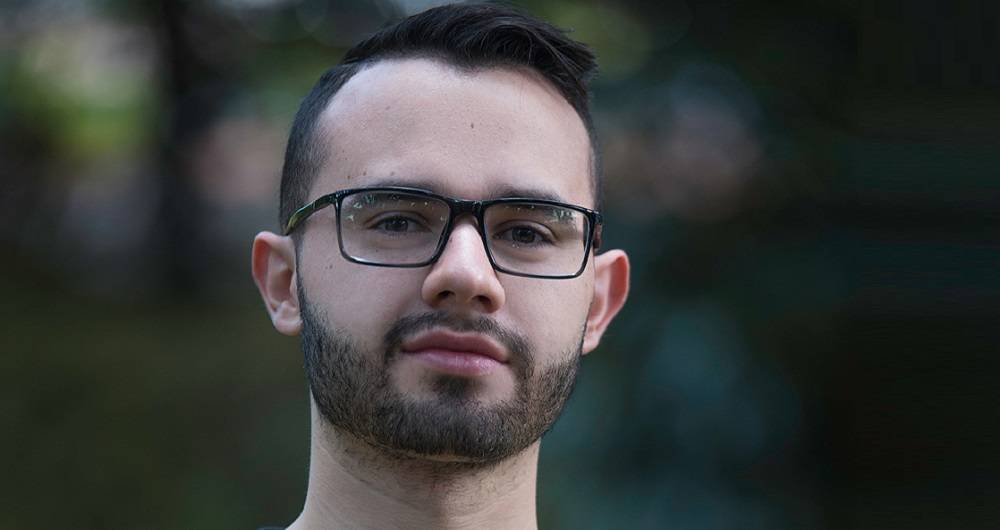Andres Sarrazola caught the entrepreneurial bug at the age of 17 in his home city in Medellín, Colombia. Fast forward eleven years later, he is now the CEO and founder of Ayenda, Colombia’s largest virtual hotel chain and SoftBank’s first investment in the country.
According to Andres, in Latin America around 70% of properties are independently owned, meaning they are not affiliated with any hotel chain brand. By putting small hotels under its brand name, Ayenda can help these businesses increase their occupancy rate from 30% to 75% using online advertising and booking tools.
In this episode, I sit down with Andres to talk about his entrepreneurial beginnings at 17, some of his startup failures, and how he pivoted into his current business, Ayenda. We also cover how Andres raised money for his business and the importance of writing investor updates.
The typo that made an entrepreneur
A slip of the finger on a keyboard in an Internet café is what led Andres to enroll in a private university where he was immersed in an entrepreneurial environment. As the son of two high school teachers, Andres hadn’t considered entrepreneurship as a career path until he was in this new “contagious” environment. His first startup was a digital marketing agency, which was followed by spin offs including e-commerce for pet food and dabbling in the edtech industry.
Listen to this episode of Crossing Borders to learn more about Andres’ entrepreneurial beginnings in Colombia.
Ayenda: SoftBank’s first investment in Colombia
Andres tells the story of how he formed a relationship with Softbank, which later led to an investment. Andres explains that Ayenda requires a lot of capital to be profitable in the long run, which is why it’s important to “fall in love” with your partners to reach different business milestones.
Why monthly investor updates are important
Andres explains that investor updates are a great way of nurturing relationships with current and future investors by showing how the company is achieving different milestones. According to Andres, investors have the right to know everything about the company, both the good and the bad. He goes into depth on three main ingredients an investor update should have: consistency, transparency, with a dose of entertainment.
Andres feels its Ayenda’s financial duty to send these updates, and that the feedback they receive from them is invaluable. Find out how to write an investor update like Andres on this episode of Crossing Borders.
Show Notes:
- [1:45] – About Ayenda
- [3:16] – Raising the occupancy rate
- [5:10] – Small hotels dominate the market
- [6:53] – Catching the entrepreneurial bug
- [9:26] – Being a 17 year-old entrepreneur in Colombia
- [11:34] – Other spin offs from Andres’ digital marketing agency
- [14:49] – On starting Ayenda
- [16:41] – Ayenda’s initial business model
- [19:57] – About raising money
- [22:36] – SoftBank’s investment
- [25:45] – Ayenda’s detailed investor updates
- [29:57] – Tips on writing investor updates
- [39:35] – Perks of writing a monthly update
- [42:29] – Successfully pivoting with Ayenda
- [45:19] – Advice to Andres’ younger self
- [46:38] – Andres’ recommendations on books, blogs, podcasts, and documentaries
- [49:42] – What’s next for Andres and Ayenda?
Resources Mentioned:
- Ayenda
- Andres Sarrazola
- Softbank invests in Ayenda
- 500 Startups
- Slidebean
- This Week in Startups
- Masters of Scale
- The Founder’s Dilemma – Noah Wasserman
- The 10X Rule – Grant Cardone
- The Start-up of You – Reid Hoffman
- Never Split the Difference – Chris Voss
- Sell or Be Sold – Grant Cardone
- Blitzscaling – Reid Hoffman and Chris Yeh
- Scaling Up – Verne Harnish
- Great by Choice – Jim Collins
- Good to Great – Jim Collins
- Built to Last – Jim Collins
